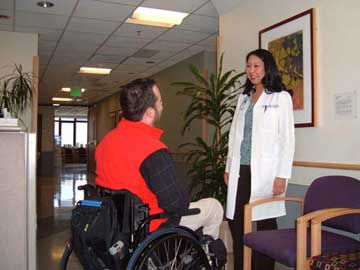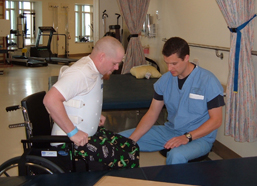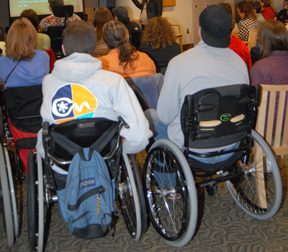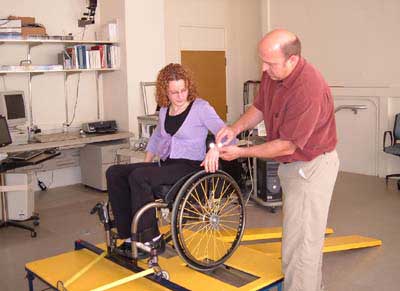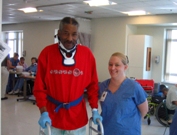Spinal Cord Injury Update
Winter 2007: Volume 16, Number 1
Landmark Study of Depression in SCI
The Northwest Regional SCI System (NWRSCIS) was awarded a five-year, $5.8 million grant from NIDRR to lead a multi-site study of the effectiveness and tolerability of the antidepressant venlafaxine XR (Effexor XR) for the treatment of major depressive disorder (MDD) in people with SCI who are one or more years post injury. Chuck Bombardier, PhD, in the Department of Rehabilitation Medicine, and Jesse Fann, MD, MPH, in the Department of Psychiatry and Behavioral Sciences, will co-lead this study, which includes three other sites in addition to the University of Washington : Northwestern University/Rehabilitation Institute of Chicago, University of Michigan , and University of Alabama-Birmingham.
This is the first controlled study of depression in the SCI population, Bombardier says. "Depression is a common disabling problem in SCI. About 22% of this population report significant symptoms of depression, including 15% who report thoughts of death or suicide." Rates of depression in SCI are two-to-six times higher than the general population. People with SCI are generally treated for depression the same as everyone else, even though there is no research indicating whether the treatment works or is well-tolerated in SCI patients.
"We wouldn't be doing this trial if we were sure antidepressants worked among most depressed people with SCI," Bombardier says. "Unfortunately, there is a reasonable chance that the standard antidepressant treatment everyone gets now isn't always very effective. The severity of psychosocial stresses-losing one's independence, source of income, and the activities that brought enjoyment-may make depression harder to treat in this group. If standard treatment doesn't really work for certain people, we need to know that so we can come up with better ways to treat depression in this population."
Furthermore, part of the depression seen in the SCI population may actually be normal feelings of loss or grief, which "doesn't respond well to antidepressants," Bombardier explains. "In this study, we will try to separate grief from depression," in order ensure that the treatment fits the diagnosis.
Since depression is known to increase the risk for pain, pressure sores and other medical complications in the SCI population, Bombardier anticipates that successfully treating depression will result in better overall health and quality of life. Ultimately, he and his colleagues hope this study will lead to more aggressive identification and better treatment of depression in SCI, both regionally and nationally.
The antidepressant venlafaxine XR (Effexor ® extended release) was chosen for this study because it generally has fewer side effects, less tendency to interact with other drugs, and more pain-relieving properties than other antidepressants-all important considerations for people with SCI, who often take several medications and have complex pain problems related to nerve damage.
Subject recruitment for this study is scheduled to begin in spring 2007. Individuals may be eligible if they are at least one year post injury. Once they enter the study, participants will be randomly assigned to receive a 12-week course of either venlafaxine XR or placebo (an inactive substance, sometimes called a "sugar pill"). Participation will include careful monitoring of symptom changes and any side effects, and participants will be paid for their time. Participants who receive the placebo and remain depressed at the end of the trial will be offered free treatment with venlafaxine XR.
For current information about this study, please call 800-366-5643.

